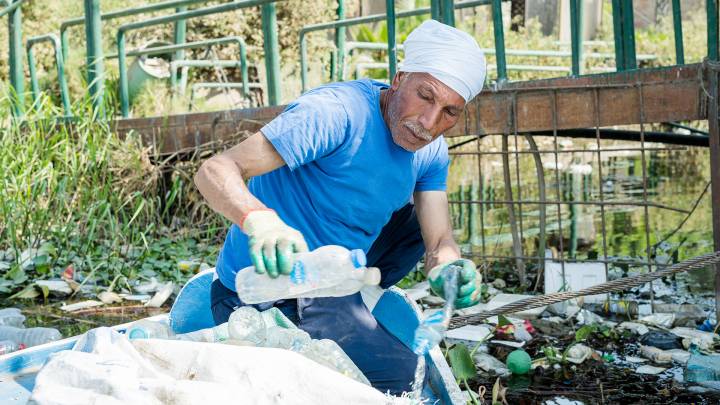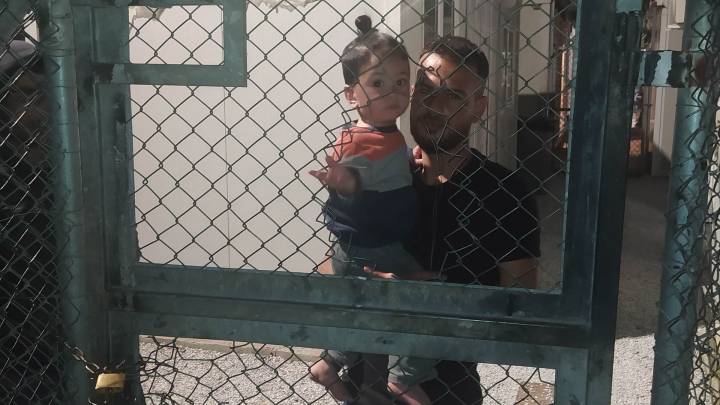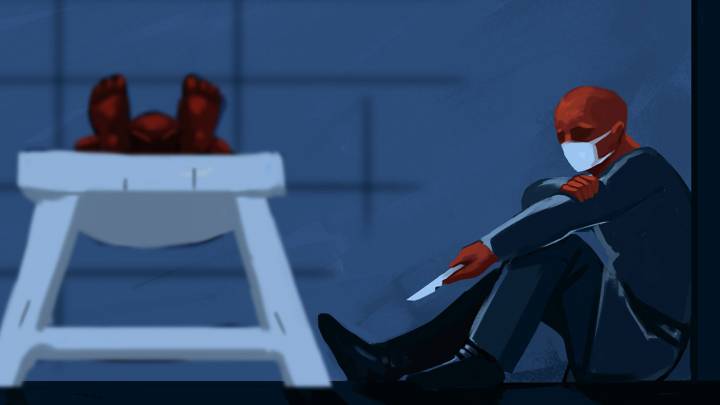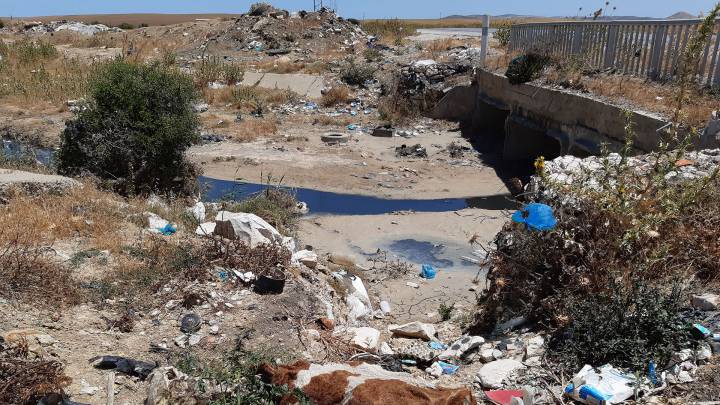As the spread of COVID-19 pushes more and more people into self-isolation, those who are already locked up from North Africa to the Gulf face becoming a hotbed for the virus.
The concentration of those incarcerated in overcrowded prisons and other detention facilities throughout the region represents a major concern during the current pandemic. With this in mind, the Euro-Mediterranean Human Rights Monitor has called for the release of all political prisoners in the region. While some countries have temporarily released detainees, others are jailing journalists for reporting on the coronavirus outbreak and using prison labour to tackle shortages.
Iran
Iran, one of the countries most affected by the first wave of the pandemic, has announced that it will temporarily release a further 10,000 prisoners in time for Nowruz celebrations. The country has freed around 85,000 prisoners because of the fear that the coronavirus will take hold in prisons. This number represents around half of Iran’s official prison population, which it reported to the UN as being approximately 190,000. A dual Iranian-British national, Anoosheh Ashoori, who is currently being held in the country’s notorious Evin prison told The Guardian of the “chaos” faced by the prison’s inmates as the authorities struggle to contain the virus. While Human Rights Watch has also reported cases of the virus in prisons found in the cities of Urumieh and Rasht in the northwest of the country.
While much of the media attention has focused on the possible release of dual nationals and foreigners in Iran, such as Canadian-Iranian Nazanin Zaghari-Ratcliffe, many political prisoners still remain incarcerated. These include civil rights activist Atena Daemi, human rights lawyer Amirsalar Davoudi, and human rights activist Narges Mohammadi.
Turkey
Meanwhile in Turkey, one of the world’s biggest jailers of journalists, the relatives of those incarcerated are increasingly calling for the government to emulate the steps taken by Iran to release prisoners to delay the spread of the virus in Turkey’s overcrowded prisons. Some are holding out for an amnesty law to be brought forward to release those who are awaiting trial. Nine human rights groups, legal organisations and unions have demanded that more precautions be taken to protect prisoners from the virus.
So far, the Turkish Minister of Justice, Abdulhamit Gül, has announced that prison visits will be postponed for the next two weeks and that all court hearings have also been postponed except for urgent cases. The authorities have also denied reports that Edirne and Balıkesir prisons have been put under quarantine due to inmates becoming infected by the virus. According to Pusula newspaper, two of their journalists were detained on 19 March and charged with ‘creating fear and panic among the people’ for covering the corona outbreak in the Black Sea town of Bartın.
The outbreak also presents a business opportunity for Turkey’s prison labour industry. It has been reported that inmates detained in the prison in the south-eastern city of Diyarbakır have dramatically increased their production of disinfectants and cologne, reportedly churning out about 80 tons of cologne per day in response to the outbreak, which have been in high demand since the beginning of the outbreak. Workshops in Turkish prisons produce a huge variety of products from bed linen to baklava.
Lebanon
In Lebanon, riots have broken out in Roumieh prison, located northeast of Beirut, out of fear of the coronavirus. The violence was exacerbated by the news of the release of Amer Fakhoury, known as the ‘Butcher of Khiam’ for overseeing torture, forced disappearances, and kidnapping while working at a prison run by the Israeli-backed South Lebanon Army in the 1990ies. Roumieh reportedly has a capacity of 1,500 but an actual population of three times that number. These riots come after similar outbreaks of violence were reported in prisons in Italy and Brazil.
Jordan
Jordan too has experienced violence among its prisoners. Two inmates died on 15 March as the result of a riot which broke out in a prison in the northern province of Irbid. The cause of the unrest was the banning of family visits as a precaution to stave off the spread of the coronavirus. In light of further reports of violence in a detention facility in the village of Rmeimeen, north of the capital Amman, Minister of Interior Salameh Hammad announced there would be no tolerance for any further incidents of rioting. On 19 March, the Jordanian authorities announced the temporary release of over 3,000 people imprisoned for debts.
Tunisia
In Tunisia, where prisons are also chronically overpopulated, Tahya Tounes member of parliament and former minister of transport Hichem Ben Ahmed has called for the release of prisoners who do not pose a serious threat to society. The Tunisian League for Human Rights has called for the immediate release of all those detained in Bulla Regia prison in Jendouba in the northwest of the country because of the poor conditions in the prison.
Egypt
In Egypt, Mona Seif, Leila Soueif, Ahdaf Soueif, and Rabab al-Mahdi were detained for protesting for the early release of prisoners as a precaution against the spread of the coronavirus. Leila Soueif, the mother of imprisoned activist Alaa Abd El-Fattah, was initially detained for longer than the others, but all four women have now been released on bail. There are multiple reports of inmates showing symptoms in prisons across Egypt, including in Cairo’s Tora prison and Wadi El Natrun prison, north of the capital.
Egyptian prisons are already known to be over capacity and in poor conditions, which have only deteriorated further due to the severe flooding the country has suffered over recent days. Many prominent prisoners already suffer from existing health conditions, such as politicians Abdel Moneim Abouel Fotouh and Ziad Al Eleimy. A ‘Protect detainees from Coronavirus’ petition has also been launched by local groups demanding that the Egyptian government immediately release all those in pretrial detention and non-violent prisoners with respiratory problems.
Israel
Israel has cut off all of its prisons from the outside world on 17 March in order to tackle to the spread of the virus. The country had already banned family visits to the over 5,000 Palestinian prisoners held in Israeli prisons on 12 March. The Israel Prison Service has denied reports that four Palestinians held in Megiddo prison, 30km southeast of Haifa, have contracted coronavirus. The Palestinian prime minister, Mohammad Shtayyeh, has called for the release of all Palestinian prisoners being held in Israeli prions over coronavirus fears. There are concerns that the Israeli authorities are taking advantage of the spectre of corona to clamp down further on the rights of Palestinian prisoners.
Bahrain
King Hamad bin Isa Al Khalifa of Bahrain has pardoned 901 prisoners while more than 500 more will be allowed to serve out their sentences outside prisons. According to the human rights organisation BIRD, although 300 of those pardoned were political prisoners, many prominent activists and opposition figures remain behind bars including Hassan Mushaima, Abduljalil Al Singace and Nabeel Rajab, all of whom have pre-existing health conditions.
Saudi Arabia
The trial of five Saudi human rights activists has been delayed due the court’s closure because of coronavirus. The women include Loujain al-Hathloul who was abducted from the UAE and detained for promoting the right to drive for women. She has been in detention since May 2018, during which time she has been tortured. Over the last few days, Saudi Arabia has postponed the hearings of several activists due to the coronavirus. The country’s public prosecution has also announced the arrest of a man for spreading misinformation about the spread of coronavirus in the country. Saudi Arabia’s response to the coronavirus pandemic comes in the context of the decision to charge nearly 300 government employees with corruption earlier in March.




